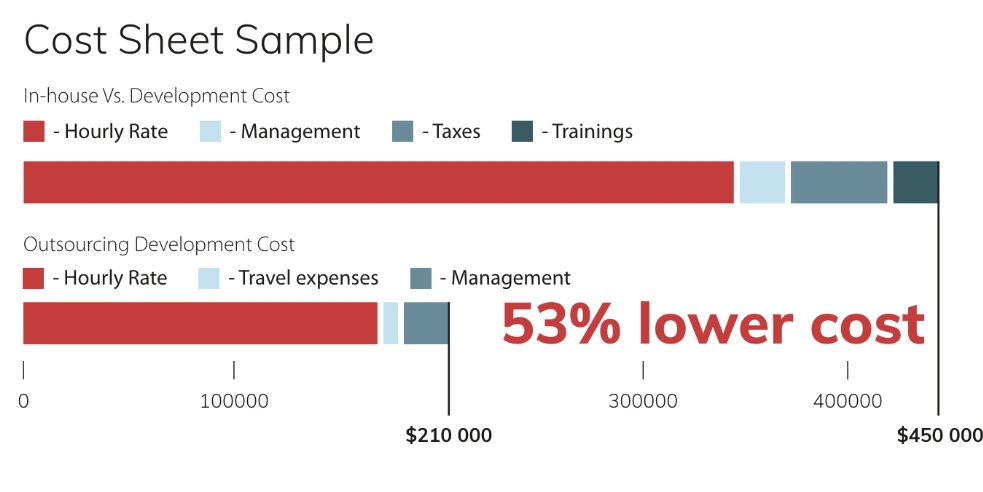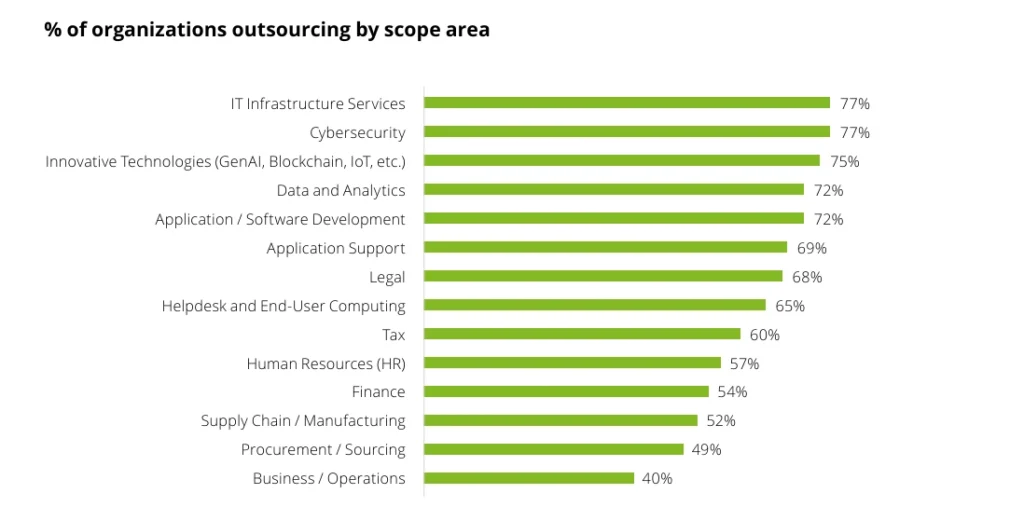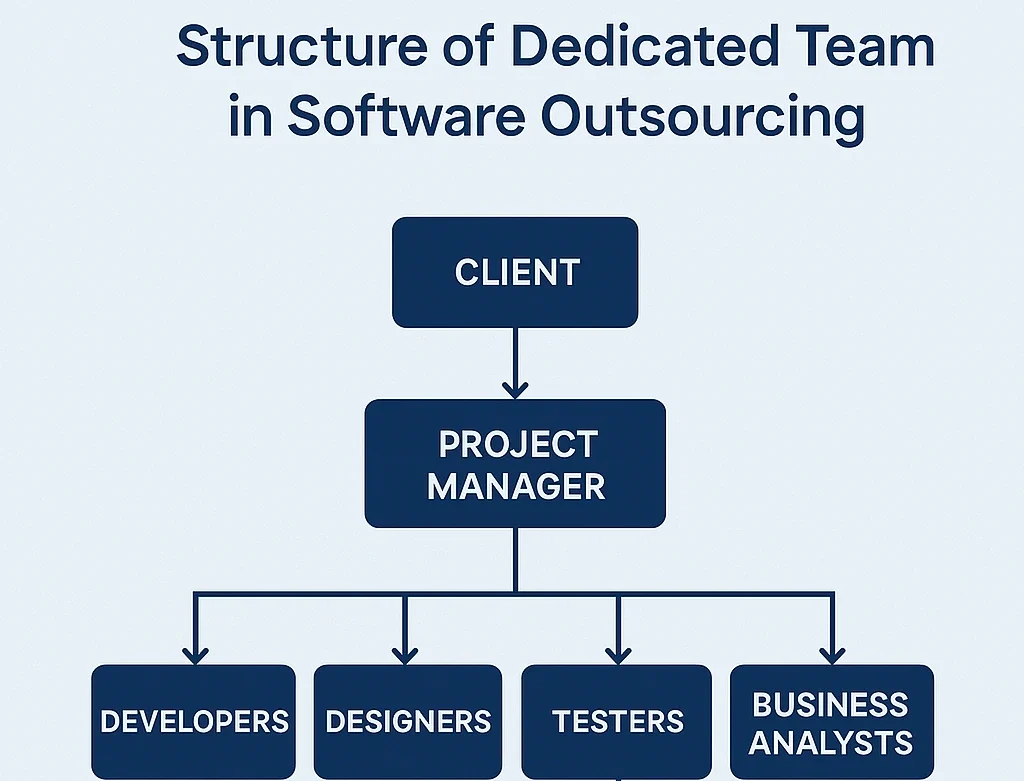In 2025, companies will face crucial decisions regarding their software development strategies. Choosing between building an in-house team and hiring a dedicated development team can significantly impact their return on investment (ROI). The questions of revenue and profits between dedicated teams vs in-house teams struggle IT-decision makers and CISOs. We at Sunbytes may have an answer to your concerns. This article analyzes the key factors businesses must consider when making this strategic decision.
Dedicated Teams vs In-House Teams: A Matter of Financial Savings
According to Existek, hiring dedicated development teams can cut development expenses by up to 53% compared to creating in-house teams. Companies leveraging geographic arbitrage significantly benefit by paying approximately $40K for developers in Poland instead of $130K in the U.S.

Source: Existek
Dedicated teams also eliminate extensive overhead costs associated with recruitment, training, infrastructure, and employee benefits. Furthermore, adopting remote dedicated teams saves about $240,000 annually on office space alone for a typical 50-person team. Additionally, dedicated teams avoid employee benefits costs, which typically comprise around 30% of total compensation.
Which Has Productivity and Faster Time-to-Market?
Dedicated teams consistently achieve higher productivity levels—25% greater than traditional development models. This improved productivity translates into delivering products 20% faster. A dedicated team-focused approach reduces distractions and enhances efficiency.
Low turnover rates in dedicated teams further increase efficiency, resulting in projects being completed 20% quicker than in high-turnover environments. That’s why many high-tech industries, such as SaaS, PaaS, or the rising AIaaS, choose this method as a potential alternative to growing an in-house team.
Deloitte’s findings show that IT areas where companies most frequently outsource to external service providers
- Cybersecurity (81%)
- App/software development (79%)
- Next-gen tech (78%)
- IT infrastructure services (77%)
- Data and analytics (75%)
- App support (73%)
- Helpdesk and user computing (68%)

Source: Deloitte
Which Has Instant Access to Specialized Talents?
For 59% of businesses, expertise is prioritized over immediate cost savings, making dedicated development teams attractive due to their specialized skill sets. These teams include experienced developers, designers, testers, and project managers, providing specialized skills often scarce locally.

Effective communication protocols employed by dedicated teams prevent delays, which can extend project timelines by up to 30%. The resulting high-quality solutions significantly cut project expenses—up to 75% over multiple projects—by minimizing rework and issues.
Read more: How to Successfully Onboard a Dedicated Team
Which Has Flexibility and Scalability Benefits
Dedicated development teams offer substantial flexibility, allowing businesses to quickly scale resources according to changing project demands. They provide adaptability to evolving business requirements, especially valuable for projects with unclear or shifting scopes.
Read more: Teamviewer’s website got supercharged with Sunbytes’s dedicated teams
Unlike fixed in-house teams, dedicated teams allow the swift reallocation of resources as priorities evolve, ensuring optimal efficiency without the long-term commitment of permanent hires. It’s a perfect example of lean outsourcing.
Are There Any Challenges to Anticipate and Manage?
Despite numerous advantages, organizations must manage certain challenges. Language barriers and time zone differences can complicate communication, requiring robust management practices.
Dedicated teams also offer less direct oversight than in-house teams, necessitating clear, well-structured management strategies. Moreover, data security and intellectual property protection require careful planning and secure management practices to mitigate potential risks.
Why Are Dedicated Teams a Smart Long-Term Investment?
Dedicated development teams contribute significantly to sustainable competitive advantage, particularly through consistent, low-turnover staffing that accelerates project completion by 20%. Predictable maintenance costs and improved continuity are additional benefits compared to freelancers or frequent in-house team changes. Companies report significantly lower rework costs, faster resolution of issues with dedicated teams, and reduced expenses related to employee turnover and retraining.
Dedicated development teams present a compelling strategic choice in 2025, offering considerable ROI through many beneficial aspects for your software development projects. Businesses seeking efficient, high-quality outcomes should strongly consider dedicated development teams as their software development resource solution.
Tempted to learn more? Partner with us to lead the way in this lucrative maze.
Let’s start with Sunbytes
Let us know your requirements for the team and we will contact you right away.


